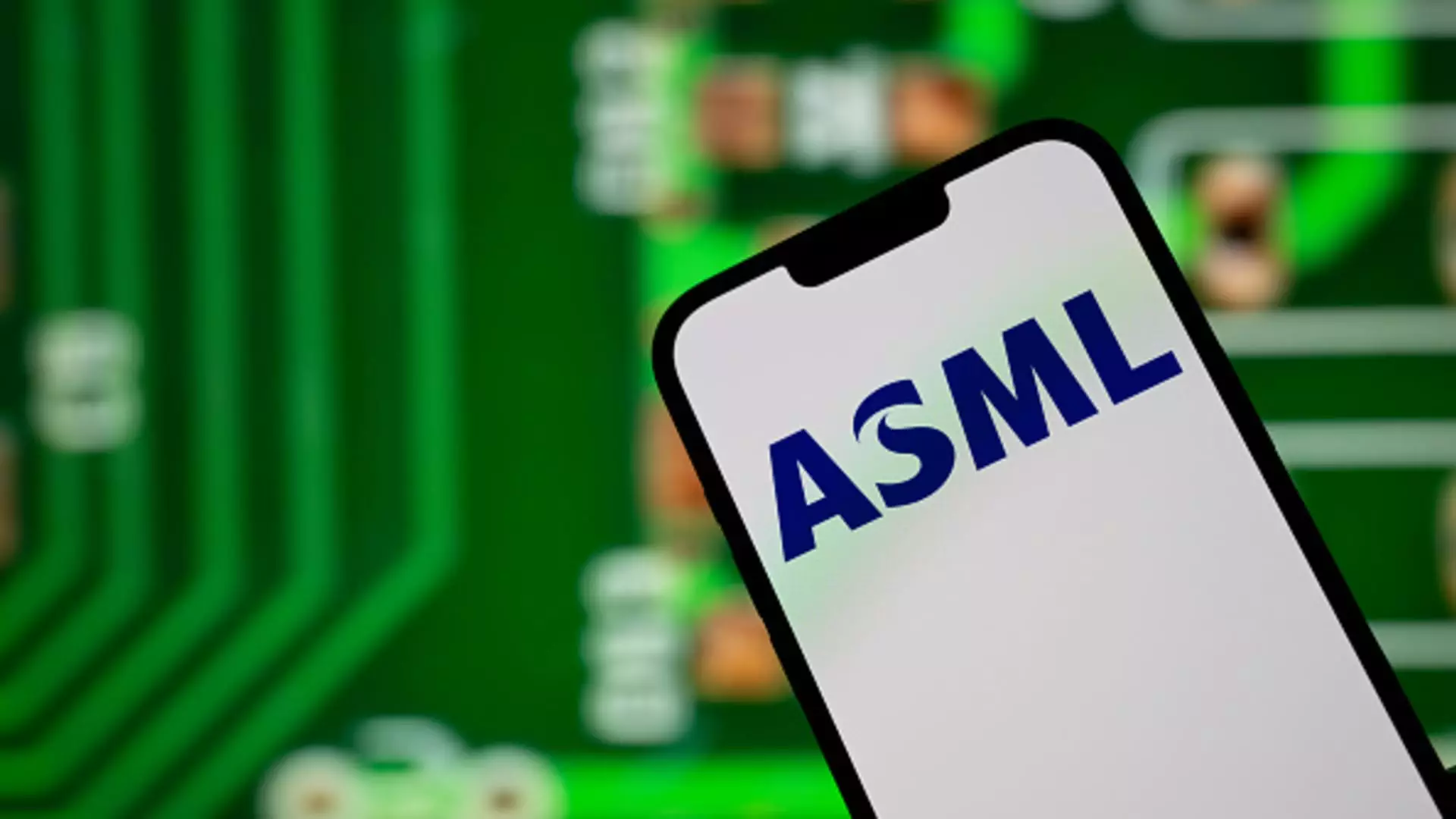In a landscape rife with volatility, ASML, a key player in the semiconductor equipment sector, has sent mixed signals that could foreshadow a tempering of growth. The Dutch company’s recent report revealed net bookings of €3.94 billion ($4.47 billion) for the first quarter of 2025, drastically underwhelming the anticipated €4.89 billion. This shortfall raises alarms regarding the relentless demand for advanced chipmaking machines, especially in an industry where precision and technology are paramount.
ASML’s financial performance exhibited slight underperformance against market forecasts. Net sales came in at €7.74 billion, narrowly missing the €7.8 billion target, while net profit landed at €2.36 billion against an expectation of €2.3 billion. These figures suggest that while ASML is certainly profitable, the underlying dynamics may be shifting. The semiconductor landscape, historically buoyed by insatiable demand, may be facing a recalibration as global economic pressures mount.
CEO Insights: A Cautiously Optimistic Outlook
In a statement that did little to quell rising concerns, ASML CEO Christophe Fouquet shared a cautiously optimistic perspective on demand, underscoring artificial intelligence as a vital growth driver. Yet, he simultaneously acknowledged “uncertainty with some of our customers” that could potentially nudge the company’s revenue estimates toward the lower end of its guidance for 2025, projected between €30 billion and €35 billion.
Fouquet’s remarks aren’t simply corporate platitudes; they highlight a deeper unease. The CEO’s emphasis on “dynamic” market conditions reflects a growing recognition that global economic factors, including geopolitical tensions and evolving trade policies, are increasingly influential in shaping ASML’s future. His references to tariffs as a “new uncertainty” underscore an urgent need to navigate an ever-changing marketplace that remains sensitive to global politics.
The Tariff Effect: A Looming Challenge for Semiconductor Industries
Recent developments regarding tariffs imposed by the U.S. administration add yet another layer of complexity. A space once thought immune to significant disruptions now faces potential ramifications from proposed trade measures. The recent announcement of temporary exemptions on products such as smartphones and semiconductors exemplifies the fluidity of the situation and underscores the administration’s balancing act between national security and economic stability.
The fragility of global chip stocks over the past fortnight can be traced directly to these tariff discussions. Investors are acutely aware that Huawei, Qualcomm, and a host of other tech stalwarts are tethered to the semiconductor supply chain. Thus, ASML’s fluctuating bookings could have far-reaching implications not just for its own trajectory but also for the firms that rely on its technology to drive their innovations.
The Path Forward: Strategic Adaptations in a Shifting Landscape
As ASML looks to the future, its ability to adapt to this complex and uncertain landscape will be critical. The company must not only assess its immediate financial performance but also recalibrate its strategies in light of external pressures. The ability to pivot and maintain agility in operations could determine its resilience as demands shift in the semiconductor market.
With AI leading the charge in driving demand, ASML’s technology becomes even more crucial. However, balancing this push against the backdrop of tariffs and customer uncertainties will require astute leadership and strategic foresight. Navigating these waters is not merely a test of financial acumen but a challenge that will shape the contours of the semiconductor industry for years to come.


Leave a Reply